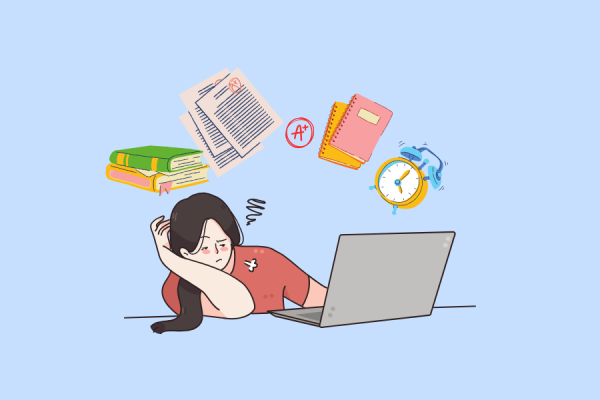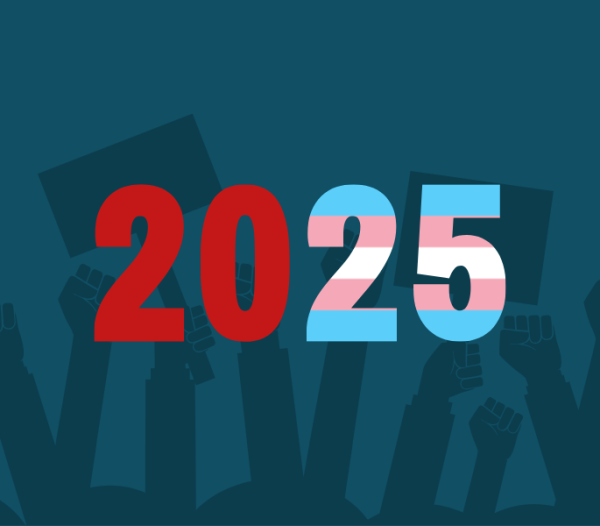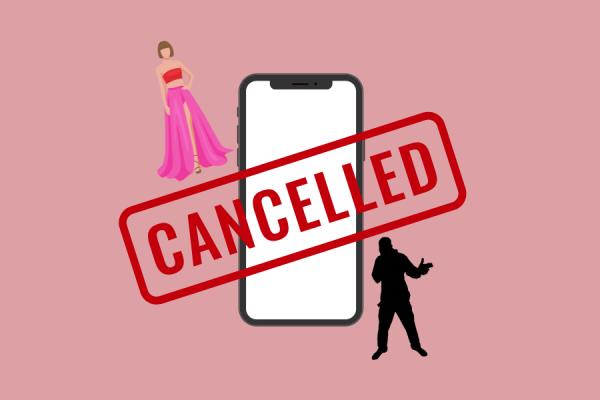OPINION: We Need to Talk About Depression
In the wake of Logan Paul’s awful attempt at “awareness”, suicide continues to be a crippling end result of depression around the world, but it is simultaneously the one thing that nobody seems to want to talk about in the depth that it requires. Especially in a time where certain terms such as “killing myself” or “depressed”, or “triggered” are thrown around in conversation as if they weren’t harmful phrases and real problems for no reason other than a laugh, it is no wonder why depression has become such a taboo subject when it suddenly isn’t a joke anymore.
There is no question that speaking to others about depression is difficult, but there are ways that we can make the switch to medication or therapy easier before you or someone you love ends up at the lowest points in their life.
- Talk about these things! It won’t be taboo if we just talk! Ask your friends how they’ve really been doing these past few months; make yourself a safe space.
- While you can be a safe space, make it clear that you are not a therapist. All you can give is comfort and small bits of advice — you cannot give prescriptions or actual medical advice
- Ask your family about your genes — you actually can inherit depression and other mental illnesses. See if you have a family history of suicide or certain traits/chemical deficiencies that could lead to what you are experiencing now.
- Don’t be afraid of how you are feeling. Your experiences are valid and are a part of who you are — don’t hide anything because you are embarrassed or unsure if this is normal.
Symptoms of depression can often go unnoticed for a long time because some of the trademark red flags are associated with teenagers or being lazy. Because of this association of common traits of mental illness and “normal” emotional teenage behavior, it is often too late before those trademark red flags are noticed.
Emotional symptoms can be:
- Easily irritable
- Withdrawal from social situations
- Lessened interest in once enjoyable activities or topics
- Fixation or obsession over past mistakes
- Intrusive thoughts of death, suicide, or self harm
- New and increasing phobias
And while the emotional ones are sometimes the most important, there are physical symptoms that go unnoticed as well which also affect health in unexpected and dangerous ways.
Physical symptoms can be:
- Insomnia or sleeping too much (uncontrollable exhaustion or fatigue)
- Increased appetite or no appetite at all
- Weight gain or weight loss
- Difficulty concentrating and making decisions
- Unexplained aches or pains
- An increasing use or beginning usage of drugs or alcohol
- Self-harm
- Unexpected and debilitating anxiety attacks
In younger children and teenagers, depression can also be shown in an unwillingness to leave the house to go to school or other normal and reasonable outings. They might be reluctant to take care of themselves (i.e., taking showers, brushing teeth, general hygienic things.) or hesitant to interact with others.
There is something that is important for you to know: you are not alone. Your peers and even your favorite celebrities are going through the same difficult chemical deficiency effects that you are. YouTuber Daniel Howell recently came clean about his own struggles with mental illness, revealing the struggles with medication and past mental breakdowns to show his audience and himself that this was nothing to be ashamed of. Other more well-known faces include Bo Burnham, who has entire comedy shows like Make Happy and What based around his own fears and experience with owning his mental illness and how creativity and humor are helping him fight it.
Thomas Sanders is another YouTuber trying to make his channel a safe space for everyone, which is a rare find these days. His advocacy and representation of “guys, gals, and nonbinary pals” goes a long way for the LGBT+ teenagers watching his videos. He uses his platform and his better-known “Sander Sides” videos to show the many aspects of a personality going through real-life issues that people need to deal with and how to come to a peaceful and logical solution that all sides of him can agree on. One of these ‘sides’ of Thomas is Virgil, better known as “Anxiety,” representing Thomas’ inner turmoils and anxiety in all situations. Most videos show that this anxiety is the main part of most of his problems, but recently, in a two part video titled “Accepting Anxiety,” Thomas brings up the idea that anxiety, in the small doses that many people experience, can actually be fundamental to day-to-day life. His “logical” side, “Logan,” supports this with graphs of the “Yerkes-Dodson Curve,” showing how at optimal performance, anxiety (then referred to as “arousal”) must be low enough to not hinder abilities, but high enough to give an individual the motivation to actually complete the task.
“You are allowed to feel sadness. You are allowed to feel fear. Many people are going through things that I could never possibly understand,” Thomas said in a video. “And I hope to be there to try to understand as best I can, and I hope we will all do that. But the important thing to keep in mind is… You are also allowed to feel happiness. You all deserve happiness.”
And everyone remembers Robin Williams. The beloved actor suffered alone for months, possibly even years, and too few noticed until it was too late. His death shocked the world, but also brought up important new topics of how even celebrities can be affected and why the media should be talking about mental illness before another celebrity’s name is part of another devastating headline. Even when asked if he had been officially diagnosed with clinical depression, he confirmed that he had not been. Diagnosis or not, there was something wrong and that something killed him.
“And for those suffering from depression, I know how dark and endless that tunnel can feel,” wrote Zelda Williams, Robin Williams’ daughter, on Instagram. “But if happiness seems impossible to find, please hold on to the possibility of hope, faint though it may be. Because I promise you, there’s enough nights under the same yellow moon for all of us to share, no matter how or when you find your way there.”
Often, teens and young adults will mask their depression or feelings of self loathing with self-deprecating humor, much like Burnham and Howell. Recently jokes have surfaced about eating Tide pods, a laundry detergent filled capsule that, if consumed, can result in catastrophic bodily harm. In the past, other memes (internet jokes) circulated regarding drinking clorox bleach. Though both Procter & Gamble (owner of Tide) and the Clorox Company both stated there had been no uptake in injuries as a result of consuming their products during these periods when the memes were popular, seeing or writing jokes about the consumption of life-ending products such as these can be almost cathartic for victims of depression, giving them something to relate to though the fact that they can relate to wanting to drink bleach is tragic.
These style of jokes aren’t new. Self-deprecating humor has been around for as long as humor itself. The change came when depression became more well known. While funny, these jokes are now seen more as what they are: thinly masked cries for help. According to an article published on the National Library of Medicine’s website, people tend to be less concerned about a person if they’re making fun of themself, rather than being made fun of by another person.
“People tend to inhibit a related behavior if they observe another person being ridiculed,” Ji Young Lee, Michael D. Slater, and John Tchernev write, “whereas people tend to less concerned about being negatively evaluated if they observe an individual making fun of himself or herself.”
There are ways to raise awareness and contribute to the prevention of suicides across America. Recently, musical artists Logic, Alessia Cara and Khalid made headlines for their song, 1-800-273-8255, titled after the National Suicide Lifeline phone number. The song sports lyrics with supportive messages, telling their listeners that “I want you to be alive/ You don’t gotta die today.” Logic tweeted that he was inspired to write the song after fans told him his music had saved their lives.
“Many of you have told me it’s even saved your life. I’m beyond humbled. But I felt I haven’t done enough,” Logic tweeted, “I felt compelled to make a song that could actually help you.”
Organizations, such as The National Suicide lifeline , runs a 24-hour hotline for people who have suicidal thoughts and want to commit suicide (1-800-273-8255). They even have lifelines for those who are deaf or hard of hearing (1-800-799-4889). This organization and organizations like it depend on volunteers and donations to keep providing their ever-important service. Any amount helps. To combat suicide, organizations everywhere have risen up and created hotlines and chatting sites specifically for people considering ending their life. The call lines for these organizations are 24/7 and their chat rooms, built for those who experience higher anxiety when talking on the phone, have varying times depending on the organization but are usually open during at least the majority of the day. Some of these organizations are also specified to help members of the LGTBQIA+ community, rape victims, survivors of abuse, people struggling with addiction, victims of bullying or hate crimes, or people with PTSD.
There are also wrong ways to raise awareness.
This is where we (sadly) bring up the Logan Paul issue. Specifically, how he ‘raised awareness’ for suicide by venturing into the “suicide forest,” officially known as Aokigahara, at the base of Mount Fuji and filmed a suicide victim. He then posted it to Youtube in a video which also featured him laughing at the body and making jokes about the experience. After experiencing a lot of backlash, he removed the video and posted an apology in which he claimed he posted the original video to raise awareness for depression and he had hoped that it would be able to prevent suicides (you can read more about the entire ordeal and fellow reporter Connor Cowman’s opinion on it here). This method of ‘awareness’ can trigger people with depression or those who had to go through the torment of being the one who found their loved one’s body.
“Welcome, my friend, you are not alone,” Suicide.org founder Kevin Caruso said in a letter he posted. “And let me remind you that there is nothing more important than your life. Nothing.”
In Texas alone, about 193,000 adolescents (8.9% of all adolescents) per year in 2009–2013 had at least one major depressive episode (MDE) within the year prior to being surveyed, and the percentage is only increasing. Every 100 minutes, a teen commits suicide. You never expect depression to affect you or a loved one until it’s too late. That’s just how depression works. Sometimes, people with depression don’t even realize they have depression because they don’t know the symptoms. Signs of depression often go overlooked in this new day and age. It takes a lot of different forms. It could be exhaustion/fatigue, lessened interest in once enjoyable things, thoughts of hopelessness, irritability, and many others. All of these symptoms can be easily mistaken for just life being difficult, which causes many adolescents to not seek medical help once symptoms begin to present themselves.
If you, as you read this, have suffered with depression or are connecting the dots right now, don’t be afraid to reach out. Suicide prevention hotlines are 24/7, but are a last resort. Family, friends, or teachers will always be there for you to help you see what steps you need to take. Sometimes the days will be good, but depression will likely be there the next day. Don’t be afraid of medication, counseling, or in extreme cases hospitalization – a pill or a face-to-face conversation could save you. None of this will be easy, but it is something that may need to be done. The world needs you in it. You may not be able to look far into the future now, but one day you will look back on yourself today and be grateful that you have made it this far. There are always better things coming tomorrow, and I hope that you are able to see them.
Suicide Hotlines
1-800-273-8255 : National
1-800-784-2433 : National
512-472-4357 : Austin
630-482-9696 : Depression
1-866-4-873-867 : LGBTQ+
Texting Hotlines
1-800-799-4889 : Connects to TTY
If you or someone you know are in immediate danger of hurting yourself/themselves, call 911 now.

My life basically consists of playing lacrosse and doing homework but when I have a moment to myself I can be found jamming out to my favorite songs or...






